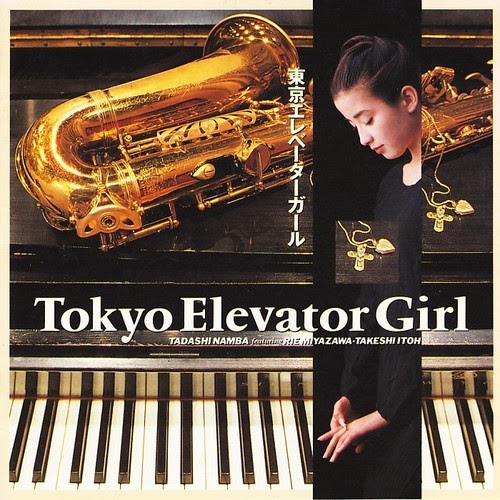When I wrote about Rie Miyazawa, I knew I’d have to come back to share another interesting side trip she’d take. In this case, it’s Rie’s work with Tadashi Namba and Takeshi Itoh on Tokyo Elevator Girl (東京エレベーターガール), a fascinating coda to her inspiring early ‘90s period, a soundtrack to Japanese TV drama of the same name.
Just two years removed from Chepop, in 1992, we find Rie caught in a whirlwind of controversy. In 1991, under the influence/exploitation of her mother, she agreed to do a photoshoot with Kishin Shinoyama – famous for photographing John Lennon and Yoko Ono for their Double Fantasy cover – and (in a way) announce her transition into adulthood with a nude photobook, “Santa Fe”, largely, shot in Santa Fe, New Mexico.
The main issue for Rie wouldn’t be the nudity per se, as many idols of that era had to go through that same grinder of releasing sexually-themed books for fans, it would be two things: unedited photos showing Rie’s pubic hair and the discovery that she took these photos just shy of 18 years old. In an attempt to gin-up Rie’s career, her mother found a way to drop her right in the middle of a political and cultural debate on just what constitutes child pornography.
It’s no wonder that with all the commotion of the time, Rie sought to shift her focus elsewhere and turned towards her acting career, for the time being. This change meant pivoting from more innocent, adolescent roles into more adult-oriented dramas. And, in a way, the drama that she’d worked on in 1992, presented some idea of just what she was going through.
東京エレベーターガール (Tokyo Elevator Girl), found Rie playing one of the many young girls that once whisked customers up and down countless Japanese department stores. Elevator girls, for those who ever ran into them, whose responsibilities included directing, greeting, waiting on and providing company for customers en route to (or looking for) stuff to buy. In her leading role, Rie was exploring the – no pun intended – many ups and downs of young adult women face while learning to navigate this role, in an era where ingrained patriarchal conformity loomed large and many took advantage of this disadvantage with those working in this subservient profession.

It’s those themes: of finding one’s sense of self, in spite of many things trying to tell you otherwise; that would guide the soundtrack to this TV drama. As for its musical theme, Tadashi Namba, the great session keyboardist for Aragon and T-Square, would be entrusted to find the pathos in the moving images and fusion sax heavy, Takeshi Itoh, to provide its sophisticated flair.
Wisely, on 東京エレベーターガール (Tokyo Elevator Girl), Tadashi kept the focus less on simply the darker side of consumerism and but also put it on the difficult meaning behind trying to do just enough to live in the city. Atmospheric, ambient, quasi-jazz or quasi-neoclassical music, would segue into choice bits of narration spoken by Rie. Moments of urbanity, fronted by Takeshi Itoh, would be in service of putting a different spin on heavier themes. Added altogether, in some Sony Roppongi Hills music studio, the three of them, were crafting something fiercely independent of what (I imagine) the big wigs wanted for the screen.
You hear it in the impressionistic, minimalism of the “Tsukasa’s Dream” triptych. On it floating, nocturnal electronic sound hovers around the ruminative piano jazz played on Tadashi’s piano. Rie’s narration only comes in at the end to provide a human touch that’s perfectly fit for its hazy atmosphere.
Other songs like “出逢い” (Encounter), stake a more classical territory, letting Tadashi Namba mine a route most suited for TV airplay and show-off his chops. Here’s where Takeshi Itoh’s contributions like “A Lovers Suite” and “Mon Rêve”, portraying two different sides of smooth jazz, allow 東京エレベーターガール (Tokyo Elevator Girl) to touch on some hidden melancholia behind every elevator girl’s most difficult seasonal work.
Some of the soundtrack’s best moments come near the end when all three involved come together to craft the theme song for the series. They do so on, “心から好き” (I Love You with All My Heart), a genuinely touching ballad with roots in house music and touches of the French-inspired ambiance present in so many Japanese department stores. In this season of seasonal anxiety and joy, 東京エレベーターガール (Tokyo Elevator Girl) is a perfect album to touch on those working to paint those holiday scenes.

One response
Beautiful write up, thank you Diego. Looking forward to meeting you in person sometime in the future (: